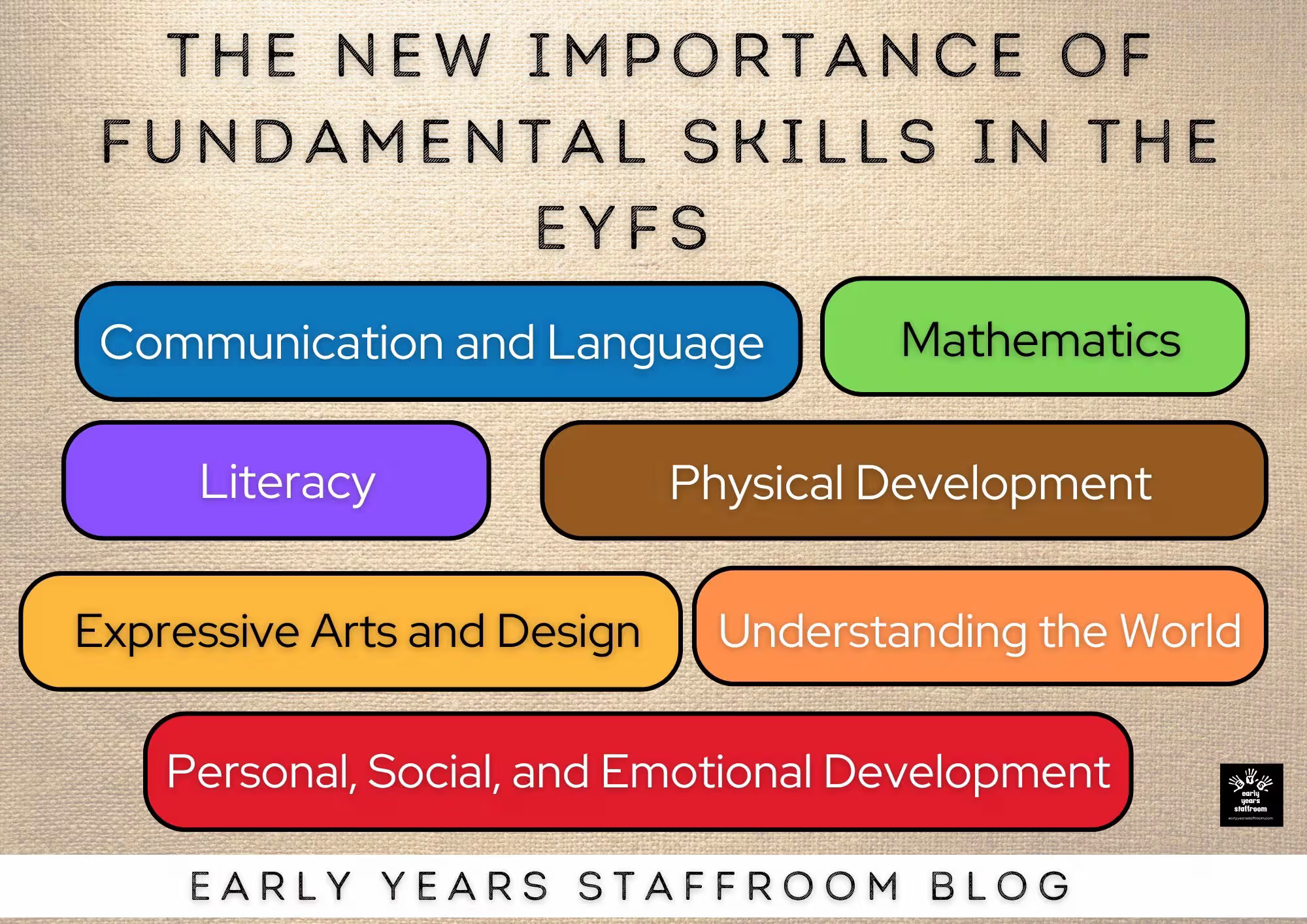In recent years, there has been an increasing emphasis on fundamental skills in the EarlyYears Foundation Stage (EYFS). These core skills provide the essential building blocks for later learning, ensuring that children develop a strong foundation for literacy, numeracy, communication, and personal development. With a growing focus on depth of understanding, it is crucial to have clarity on what fundamental skills are and how to ensure children achieve deep knowledge of them by the end of the EYFS.
What Are Fundamental Skills in the EYFS?
Fundamental skills are the key abilities that underpin all learning in early childhood. They include:
- Communication and Language: Speaking, listening, and understanding.
- Physical Development: Fine and gross motor skills, coordination, and movement.
- Personal, Social, and Emotional Development (PSED): Self-regulation, social skills, and independence.
- Literacy: Early reading, phonics, and mark-making.
- Mathematics: Number sense, problem-solving, and spatial reasoning.
- Understanding the World: Exploring concepts related to people, places, technology, and nature.
- Expressive Arts and Design: Creativity, music, and imaginative play.
Why Is There a New Focus on Fundamental Skills?
The EYFS framework highlights the importance of deep learning rather than surface-level understanding. Key reasons for this shift include:
School Readiness: Ensuring children are equipped with the skills they need for primary education.
Long-Term Success: Strong early foundations lead to better academic outcomes later.
Development of Independence: Supporting children in becoming confident, resilient learners.
Bridging Learning Gaps: Addressing disparities in development to give every child an equal start.
How Can You Achieve a Deep Knowledge of Fundamental Skills?
To ensure children achieve deep knowledge of fundamental skills by the end of EYFS, practitioners must focus on high-quality interactions, rich experiences, and sustained learning opportunities.
Learning Through Play
Encouraging open-ended activities where children can explore, question, and problem-solve.
Providing hands-on experiences that promote curiosity and active engagement.
Scaffolding and Modelling
Using adult-led and child-led learning to support skill acquisition. Demonstrating language-rich interactions to enhance communication and vocabulary.
Repetition and Mastery
Embedding skills through continuous practice and reinforcement. Revisiting key concepts to ensure consolidation and fluency.
Observation and Personalised Support
Assessing children’s progress to tailor learning experiences to their needs. Providing targeted interventions for areas requiring additional support.
Practical Activities to Deepen Understanding
- Here are some effective strategies to help develop deep knowledge of fundamental skills:
- Phonics Games: Interactive activities that reinforce letter-sound correspondence.
- Maths in Everyday Life: Encouraging counting, measuring, and problem-solving in real-world contexts.
- Storytelling and Role-Play: Enhancing language and communication through imaginative play.
- Physical Play: Activities that support coordination, balance, and fine motor control.
- Sensory Exploration: Engaging children with materials that stimulate touch, sight, and sound.
Measuring Success: Signs of Deep Learning By the end of EYFS, children should:
- Communicate their thoughts effectively and engage in conversations.
- Demonstrate confidence in early reading, writing, and number recognition.
- Show independence in problem-solving and decision-making.
- Display curiosity and persistence in learning tasks.
- Form positive relationships and regulate their emotions effectively.
Final Thoughts
Ensuring clarity on fundamental skills and providing children with opportunities for deep, meaningful learning is essential in the EYFS. By prioritising high-quality interactions, active exploration, and consistent reinforcement, we can help young learners build a strong foundation for future success.











